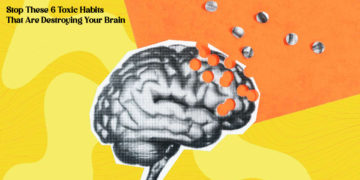Medical science is an essential part of education that has played a significant role in improving the health and well-being of people around the world. Medical science involves the study of human anatomy, physiology, diseases, and treatments, as well as the development of new drugs and medical technologies. The importance of medical science in education cannot be overstated, as it has a profound impact on both individuals and society as a whole.
One of the primary reasons why medical science is crucial in education is its ability to improve public health. Medical research has led to the development of vaccines and treatments for infectious diseases, such as polio, smallpox, and tuberculosis, which have saved countless lives. Medical science has also contributed to the development of new surgical techniques, imaging technologies, and other medical devices that allow doctors to diagnose and treat diseases more effectively. By studying medical science, students can learn about the latest advancements in medicine and contribute to the field themselves.
Medical science education also plays a crucial role in promoting health and preventing disease. Educating people about healthy lifestyle choices, such as eating a balanced diet, getting regular exercise, and avoiding tobacco and alcohol, can help prevent chronic diseases like diabetes, heart disease, and cancer. Additionally, understanding the causes and risk factors for diseases can help people take steps to prevent them. Medical science education can also help people identify symptoms of diseases early, which can lead to earlier intervention and better outcomes.
Moreover, medical science education helps develop critical thinking and problem-solving skills, which are valuable not just in the medical field but in many other areas as well. Medical students learn to analyze data, interpret research findings, and develop treatment plans based on the best available evidence. They also learn how to communicate effectively with patients and other healthcare professionals, which is a crucial skill in any profession that involves working with others.
Furthermore, medical science education can open up many exciting career opportunities for students. Healthcare is a growing field, and there is a high demand for skilled medical professionals, including doctors, nurses, medical researchers, and other healthcare professionals. Pursuing a career in medical science can be both challenging and rewarding, and it can also provide an opportunity to make a real difference in people’s lives.
One example of a successful medical professional who has made significant contributions to the field is Stacy L. Pineles, MD. Dr. Pineles is a Professor of Ophthalmology and Residency at the Stein Eye Institute at the David Geffen School of Medicine at UCLA. She travels regularly both nationally and internationally to speak on topics related to her research in pediatric neuro-ophthalmology and is the author of more than 100 peer-reviewed publications and 10 book chapters. Dr. Pineles currently runs an NIH-sponsored research program evaluating binocular vision in children and adults with eye misalignment. Her work has contributed to a better understanding of the diagnosis and treatment of eye disorders, which has helped improve patient outcomes and quality of life.
In conclusion, medical science is an essential part of education that has a profound impact on individuals and society as a whole. Medical science education can improve public health, prevent disease, develop critical thinking and problem-solving skills, and provide exciting career opportunities. By studying medical science, students can gain the knowledge and skills they need to make a positive impact on the world around them, like Dr. Pineles and other medical professionals who are dedicated to advancing the field of medicine.






